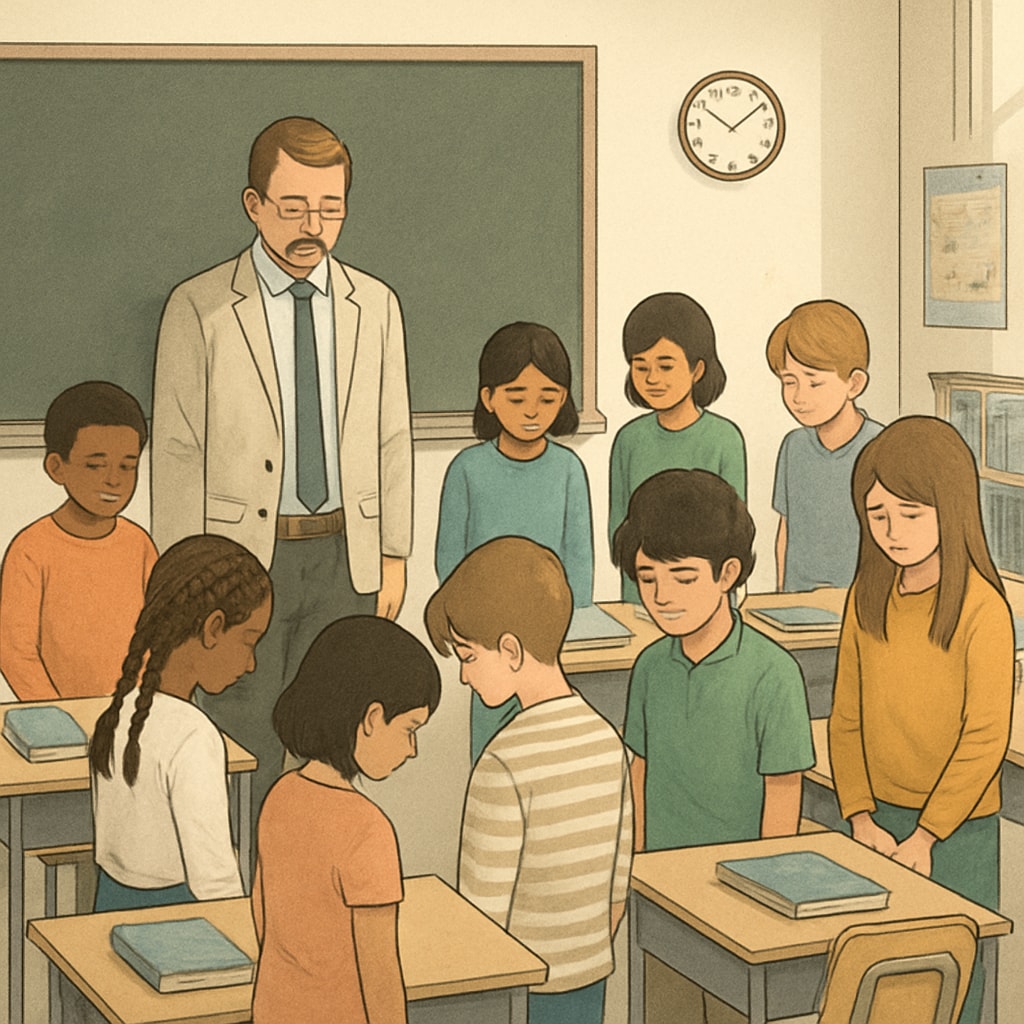The decision by schools to replace a specific moment of silence for the Gaza crisis with a generalized memorial for “all war victims” has sparked a heated debate. While some argue that this approach embodies neutrality and inclusivity, others view it as an evasion of moral responsibility. This ethical dilemma highlights the tension between maintaining political impartiality and addressing global issues with courage and empathy. The implications for value-based education in K12 environments are profound and warrant closer examination.

Should Schools Prioritize Neutrality Over Specific Advocacy?
One core argument in favor of the schools’ decision is their attempt to uphold neutrality in an increasingly polarized world. By broadening the scope of mourning to include all war victims, schools aim to avoid alienating students and parents with differing political or cultural views. This decision aligns with the principle of inclusivity, ensuring that no particular group feels excluded or singled out.
However, critics contend that this neutrality is, in fact, a form of avoidance. By refraining from directly addressing the Gaza crisis, schools may inadvertently diminish the urgency and gravity of this specific humanitarian disaster. Ethical education requires institutions to confront uncomfortable truths and equip students with the tools to critically engage with complex global issues. Simply broadening the scope of mourning may dilute the impact of the message and fail to foster meaningful reflection.

The Role of Schools in Teaching Moral Courage
Schools are not just places for academic learning; they are also pivotal in shaping the moral and ethical compass of young minds. Avoiding specific crises like the Gaza conflict in favor of a generalized approach raises questions about whether schools are shirking their duty to foster critical thinking and moral courage. Students should be encouraged to engage with challenging topics, understand different perspectives, and develop empathy for those impacted by specific events.
For example, discussing the Gaza crisis provides an opportunity to explore humanitarian principles, international law, and the consequences of war. While neutrality has its merits, failing to address specific crises risks conveying the message that all conflicts are equal in scale and severity, potentially undermining the unique lessons each situation offers.
Balancing Inclusivity and Specificity in Education
Striking the right balance between inclusivity and specificity is crucial for schools. While neutrality can create a safe space for diverse viewpoints, it must not come at the expense of addressing significant global crises. Schools can adopt a hybrid approach, where broader memorials coexist with targeted discussions about specific events like the Gaza crisis. This ensures inclusivity while also fostering deeper understanding and engagement.
For example, schools could implement activities like debates, guest speakers, or projects focused on individual crises alongside general moments of silence. These initiatives can help students develop nuanced perspectives and equip them with the skills to navigate complex ethical dilemmas.
Conclusion: A Call for Ethical Reflection in Education
The debate over schools’ decision to shift from specific mourning for the Gaza crisis to a generalized acknowledgment of all war victims reflects broader ethical challenges in education. While neutrality may seem like the safest path, it risks diminishing the unique importance of addressing specific humanitarian crises. Schools must carefully consider their role in shaping values, fostering empathy, and encouraging critical engagement with global issues.
Ultimately, the question is not just about whether schools should mourn specific crises but how they can best fulfill their moral responsibility to educate students about the complexities of the world around them.
Readability guidance: The article uses short paragraphs, avoids jargon, and incorporates transitional phrases like “however” and “for example.” Lists and examples are included to enhance clarity. Passive voice is minimized, and sentence length is controlled to maintain readability.


